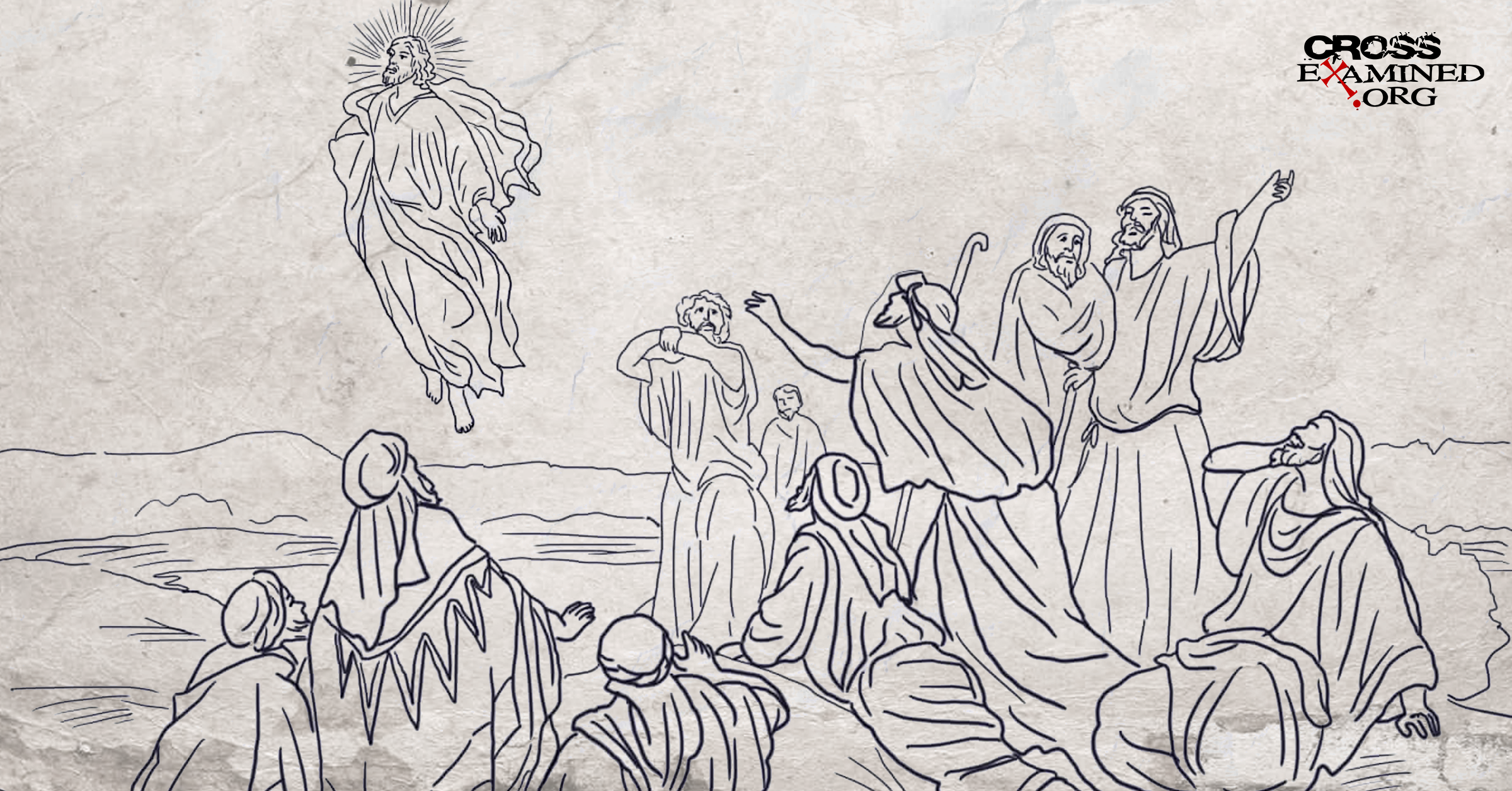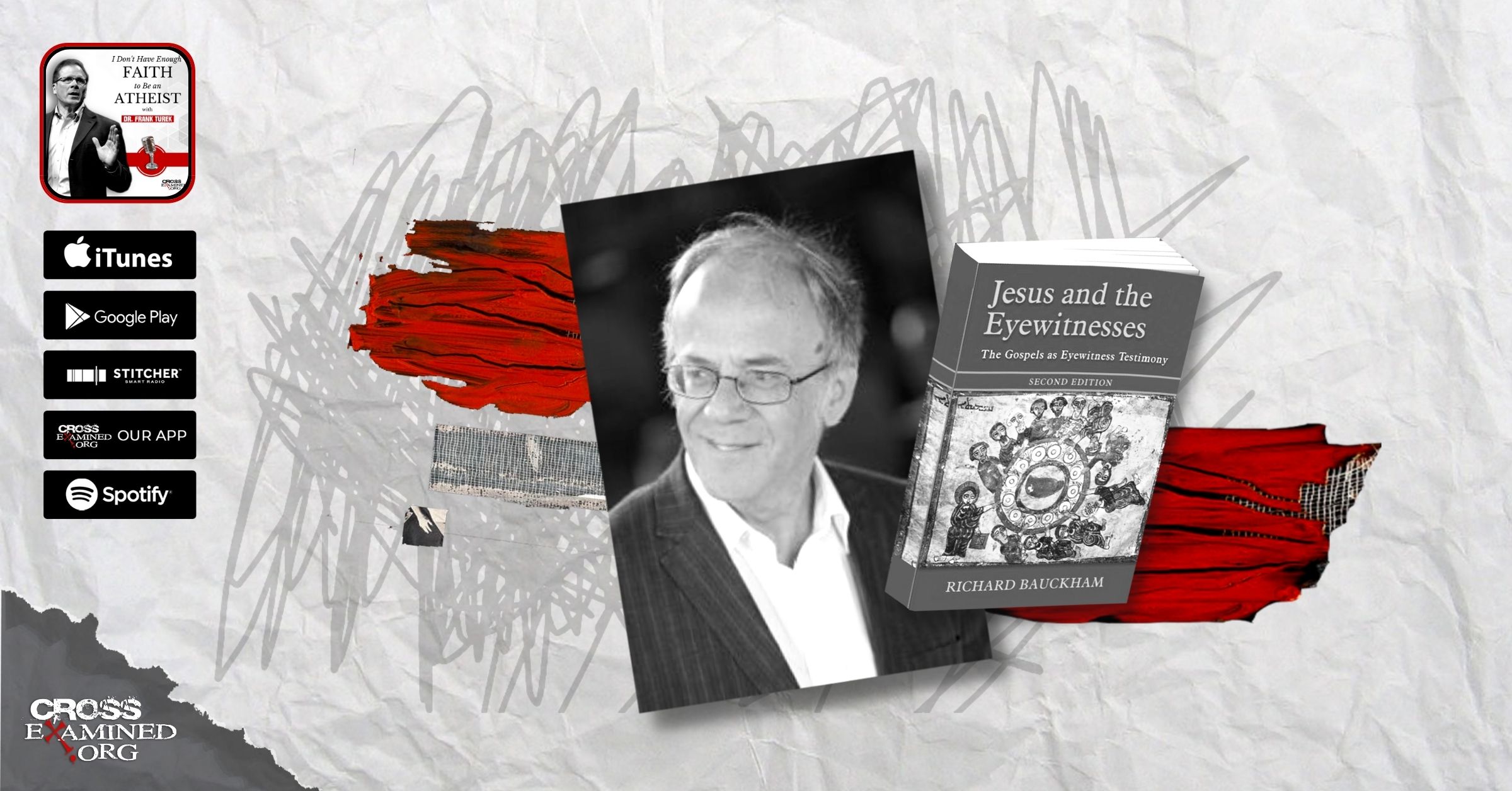By Ryan Leasure
The Gospel according to John has received more scrutiny than the other Gospels put together. Case in point, dating back to the 1920s, critical scholars have argued that the apostle John could not have written the Gospel. Rather, they’ve suggested a whole slew of other possibilities (anonymous, John the Elder, Lazarus, John Mark, the rich young ruler, etc.) But is there any evidence to back up their contentions? Should we reject the traditional position which the church has subscribed to for almost two thousand years?
In this post, I will argue that John the son of Zebedee penned the fourth Gospel. I will make my case in three steps: First, I will examine the external evidence. Second, I will examine the internal evidence. And third, I will refute the common objections.
External Evidence for John’s Authorship
Writing around AD 180, Irenaeus of Lyons wrote, “John, the disciple of the Lord, who also had leaned upon His breast, did himself publish a Gospel during his residence at Ephesus in Asia.”1 In other words, Irenaeus declares that John wrote the fourth Gospel while living in Ephesus. And this John should be identified with the disciple whom Jesus loved and reclined on Jesus’ breast in John 13:23.
How would Irenaeus be privy to such information? He claims to be a spiritual grandson of John himself! Pay careful attention to how Irenaeus reminisces about his childhood experiences.
I remember the events of those days more clearly than those which have happened recently, . . . so I can speak even of the place in which the blessed Polycarp sat and disputed, how he came in and went out, the character of his life, the appearance of his body, the discourse which he made to the people, how he reported his converse with John and with the others who had seen the Lord, how he remembered their words, and what were the things concerning the Lord which he had heard from them, including his miracles and his teaching, and how Polycarp had received them from the eyewitnesses of the word of life, and reported all things in agreement with the Scriptures.2
Notice that Irenaeus claims to have been taught by Polycarp who was taught by John. That is to say, Irenaeus was in a position to know if John was the author of the fourth Gospel.
Other church fathers also affirm John’s authorship. Clement of Alexandria—also writing around AD 180—stated, “But that John, last of all, conscious that the outward facts had been set forth in the Gospels, was urged on by his disciples, and, divinely moved by the Spirit, composed a spiritual Gospel.”3
The Muratorian Fragment—a late second-century document—states plainly, “The fourth of the Gospels is that of John, [one] of the disciples.”
And finally, writing a couple of decades later, Tertullian reports, “Of the apostles, therefore, John and Matthew first instill faith into us; whilst of apostolic men, Luke and Mark renew it afterwards.” 4
On top of all this, every titled manuscript of the Gospel lists John as its author. In short, the early church affirmed that John wrote the fourth Gospel.
Internal Evidence for John’s Authorship
John 21:24 reports, “This is the disciple who is bearing witness about these things, and who has written these things, and we know that his testimony is true.” Which disciple is this? Verse 20 tell us. “Peter turned and saw the disciple whom Jesus loved following them, the one who also had leaned back against him during the supper.” In other words, the disciple whom Jesus loved and leaned on Jesus’ breast (John 13:23) wrote this Gospel.
But who is this mysterious disciple whom Jesus loved? He was certainly one of the twelve at the Last Supper (John 13:23). The synoptics make clear that only the apostles joined Jesus for this meal. Moreover, the disciple whom Jesus loved is repeatedly distinguished from Peter (John 13:23-24; 20:2-9; 21:20). Finally, he is one of the seven disciples who went fishing in chapter 21:2. That said, he cannot be Peter, Thomas, or Nathanael. He is, therefore, either one of the sons of Zebedee or one of the other two unnamed disciples that were present at the Sea of Galilee in John 21. It must be said, however, that James the son of Zebedee died in the early 40s, which rules him out as a potential author.
An additional note worth mentioning is that John is never mentioned by name in the Gospel. His absence would be extremely odd if someone else wrote this Gospel. After all, the Gospel mentions other prominent characters like Peter and Andrew and even less familiar characters like Philip and Judas (not Iscariot). Moreover, while the synoptic Gospels all refer to the forerunner of Jesus’ ministry as John the Baptist (it was necessary to distinguish him from the other prominent John), this Gospel only refers to him as John. In other words, the author did not feel it necessary to distinguish that John from himself.
Finally, John and Peter are repeatedly shown as close companions in the synoptic Gospels, Acts, and Galatians (Mark 5:37; 14:33; Acts 3:1-4:23; Gal. 2:9). Similarly, the fourth Gospel puts Peter and the disciple whom Jesus loved together frequently (13:23-24; 20:2-10; 21:20-23).
The most plausible explanation for this data is that John is the disciple whom Jesus loved, and therefore, the author of the fourth Gospel.
Answering Objections
One of the more frequently cited reasons for rejecting Johannine authorship is the self-description “the one whom Jesus loved.” In other words, John seems rather full of himself to give himself this title. This objection, however, should not deter us from accepting traditional authorship. After all, what Christian doesn’t affirm that God loves them? There is nothing boastful about making this claim. On the contrary, its the mark of humble gratitude. As Carson and Moo assert, it “is scarcely the mark of arrogance; it is rather the mark of brokenness.”5 Paul, for example, declares that Christ “loved me and gave himself for me” (Gal. 2:20). Nothing arrogant about that. Just plain awe and gratitude.
Another frequent objection to the tradition view is that the early church thought a different John wrote the Gospel. This objection stems from a quotation from Papias who mentions a particular “elder John” in addition to the “apostle John.” However, as Carson and Moo point out, the Greek syntax Papias uses, namely the anaphoric use of the article for the second John, strongly suggests that “elder John” and “apostle John” are really the same person.6 Also noteworthy is that Peter calls himself an “elder” in 1 Peter 5:1. In other words, the apostles also understood themselves as elders in the early church. Both 2 and 3 John are said to be by “the elder,” and Papias may simply be echoing that language.
A third objection is that an uneducated Galilean fisherman never could have penned this Greek Gospel. This objection fails on multiple fronts as well. First, while Acts 4:13 states that Peter and John were “uneducated,” that description does not imply that they were illiterate. “Uneducated” simply means that they hadn’t been officially trained in Jewish Rabbinical schools—not unlike Jesus (John 7:15). In fact, most Jewish boys received an education so that they could read the Scriptures. Moreover, John came from wealth (his father owned a large fishing business—Luke 5:3,10; Mark 1:20). Therefore, he most likely received an excellent education.
Recent studies also suggest that Palestinian Jews were often able to speak both Aramaic and Greek.7 With the discovery of Greek coins, Judean-Greek documents, Greek names on burial inscriptions, and even a Greek-speaking synagogue, it’s not unreasonable to think John wrote this Gospel. These pieces of evidence don’t even take into account that John had several decades in Greek-speaking Ephesus to brush up on his Greek before writing his Gospel.
The Gospel According to John
Based on the external and internal evidence, John the son of Zebedee is the author of the fourth Gospel. While the objections cannot be ignored, none of them undermine the evidence in favor of traditional authorship.
Recommended resources related to the topic:
The New Testament: Too Embarrassing to Be False by Frank Turek (DVD, Mp3, and Mp4)
Why We Know the New Testament Writers Told the Truth by Frank Turek (DVD, Mp3 and Mp4)
Jesus, You and the Essentials of Christianity by Frank Turek (INSTRUCTOR Study Guide), (STUDENT Study Guide), and (DVD)
__________________________________________________________________________________________________________________________________________________
Ryan Leasure holds a Master of Arts from Furman University and a Masters of Divinity from the Southern Baptist Theological Seminary. Currently, he’s a Doctor of Ministry candidate at the Southern Baptist Theological Seminary. He also serves as a pastor at Grace Bible Church in Moore, SC.
Original Blog Source: https://cutt.ly/InPkO6A










